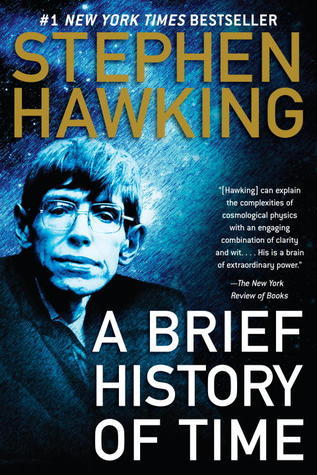TL;DR
A Brief History of Time by Stephen Hawking explores the origins, structure, and eventual fate of the universe, explaining complex concepts in physics in an accessible manner.
What is A Brief History of Time about
A Brief History of Time, authored by the world-renowned physicist Stephen Hawking, delves into the profound questions about the universe's beginnings, structure, and fate. The book examines topics such as the Big Bang, black holes, time travel, and the fundamental laws of physics. Using clear and understandable language, Hawking aims to bring complex scientific concepts to a wider audience. The book is celebrated for making advanced topics in cosmology accessible to readers without a deep scientific background, bridging the gap between laypeople and the intriguing mysteries of the cosmos.
A Brief History of Time 6 Key Takeaways
The Big Bang Theory
Hawking explains the Big Bang as the origin of the universe, describing how all matter expanded from a singular point approximately 13.8 billion years ago.
Black Holes
The book discusses black holes as regions of space where gravity is so strong that not even light can escape. Hawking elaborates on their properties and the concept of event horizons.
The Nature of Time
Hawking explores whether time is linear and the possibility of time travel, introducing the concept of arrows of time and the conditions under which they operate.
Fundamental Laws of Physics
The book simplifies the laws governing the physical universe, including quantum mechanics and general relativity, and how they interact to shape our understanding of the cosmos.
The Expanding Universe
Hawking describes how the universe is continuously expanding and the implications of this expansion for the future of cosmic structures and the end of the universe.
Unified Theory
The search for a unified theory that reconciles general relativity and quantum mechanics is a key theme, highlighting the quest for a single, coherent framework to explain all physical phenomena.
Top A Brief History of Time Quotes
- "We are just an advanced breed of monkeys on a minor planet of a very average star. But we can understand the Universe. That makes us something very special."
- "The universe does not behave according to our pre-conceived ideas. It continues to surprise us."
Who should read A Brief History of Time?
A Brief History of Time is ideal for readers with a keen interest in cosmology, physics, and the mysteries of the universe. It is particularly suited for those who possess a basic understanding of scientific concepts but are eager to delve deeper into the workings of the cosmos. The book offers both enlightenment and inspiration for anyone curious about the origins and fate of the universe.
A Brief History of Time Best Reviews
- "A masterful synthesis of scientific research and accessible writing, A Brief History of Time is an enduring classic that brings the wonders of the universe to the general public." - The New York Times
- "Hawking's ability to explain complex concepts in layman's terms is both enlightening and rewarding, making this book a must-read for anyone curious about the cosmos." - Scientific American
People also liked these summaries
A Brief History of Time FAQs
Is A Brief History of Time hard to read?
The subject matter can be challenging, but Hawking's writing style is clear and aimed at making complex ideas accessible. However, readers may need to revisit certain paragraphs to fully grasp the concepts.
Can beginners read A Brief History of Time?
While the book is well-written and explains modern cosmology concepts for a lay readership, a basic grasp of science will enhance understanding and appreciation.
What is the message of A Brief History of Time?
The book explains the nature of time, the universe's origin, and the fundamental laws governing physics, offering a guide to the complexities of the cosmos in simple and concise language.
